
Laleh Ghobi, a graduate student in the masters of arts and teaching (MAT) program, is the student commencement speaker for the graduating class of 2017. The student commencement speaker selection committee said they felt her passion for education and for Westminster made her a good representative among her peers to speak at the event. Photo by Stephanie Brown-Richards.
Laleh Ghotbi, a graduate student in the masters of arts and teaching program, will represent the class of 2017 as the student commencement speaker at Westminster College’s graduation today.
Ghotbi is a non-traditional student from Iran. Though her background is different from many students’ at Westminster, the student commencement speaker selection committee said they felt her passion for education and for Westminster made her a good representative among her peers to speak at the event.
Karnell Black, assistant dean of students and the chair of the speaker selection committee, said Ghotbi’s speech will only be four minutes long but will nevertheless encompass many important messages.
“One of the things that stood out was Laleh’s passion and excitement around why education is important,” Black said. “When we listened to her speech, it was heartfelt. It really showcased the values of the college and it showcased her own experience of engaging with the college, too.”
Black described Ghotbi’s speech as “forward” and said the community has the opportunity to understand what her message and experiences mean beyond Westminster’s campus.
“If you think about her story and where she’s coming from, she wanted to take advantage of every opportunity to be able to educate other folks,” Black said. “As a graduate student who’s going to be going into teaching, it stood out as really important for us as a college, for folks to be able to hear that story and to hear her experience.”
The Forum sat down with Ghotbi to talk about her experience at Westminster and some of the biggest cultural adjustments she’s had to make both on campus and in the United States.
Q: How did you end up at Westminster?
A: [My family and I] came to the United States in August 2000. I went to school a couple of years later, maybe more than a couple years, and got my master’s in biotechnology from the [University of Utah]. I thought we were going to go back to Iran so I can continue my career as teacher. I was a teacher in high school and middle school back home. But since we didn’t go back, I heard from one of my friends that there’s a program for teachers here at Westminster. That’s why I came here and signed up and I love it.
Q: Why do you think you were chosen as the commencement speaker?
A: When I applied for student speaker at commencement, my speech kind of talked about not just me but many people who look different from different cultures. We have diverse students here. Some have been treated differently because of their look and don’t get a chance to represent themselves. They get misjudged by looks. So, I’m guessing it was just a match for many students [at Westminster].
I hope students can be more caring and supportive of everybody—not just people who they know or look familiar to them. Many people have accents and they’re from different countries, so stay away from misjudging people, I guess. I’m telling that to myself, too. Because of my background, maybe I misjudge people [or] have discrimination toward certain people. But then, we need to work on it—all of us, I guess.
Q: What have you enjoyed most about your time at Westminster?
A: The support system. Professors, oh my goodness, are amazing. I love them. And I can’t just say, ‘This is the one.’ It’s all of them. All of them. I mean, when you see them, you see your family members. I love it. Yeah, the support system is amazing here.
They say it’s because of the small sized classroom. I don’t think that’s the only reason. I had classes at the U. that didn’t have too many students in the class—like 20 to 23 [students]—but then I didn’t have what I have here. We didn’t know each other as well as here. At Westminster, they make an effort to make everybody in the classroom friends together. So, we care for each other and we care for our professors and for school, you know. They build a relationship first and then go after that. They care for relationships. They care for us as human beings, not just as students.
Q: Have you faced any challenges while attending school in the United States?
A: I have good friends at Westminster. I know because of culture difference, sometimes they want to go get together in a bar or something and I can’t go, so that causes us not to go out. Some of the people who approach me to be friends are just there to, as one of my professors was saying, just mark off their “I have a diverse friend” list.
One of the students in my class, she walked me from my car to class and she said “everybody needs a friend” as if like I’m there all by myself hopeless and she’s just rescuing me. Things like that. I mean, be genuine in your friendship or don’t do it. Because you’re going to hurt people’s feelings, you know. In general, it’s the wrong way to approach to people. People are not stupid. They understand when you’re caring and genuine in your love and support and when you’re just faking it.
Q: What are your plans after graduation?
A: I’d love to be a teacher. I’ve been a teacher for about eight years in Iran, but then I came here and had to start all over again. Many of the students in my classes are the same age as my son, so it’s kind of hard being among people who are much younger than you, but I don’t know. I really love teaching, so I’m willing to do it anyway.

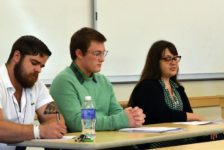
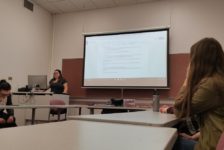

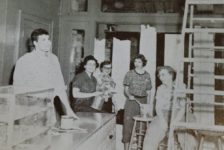
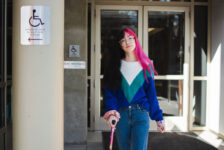
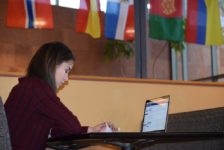



GoldenSun
What a beautiful soul!